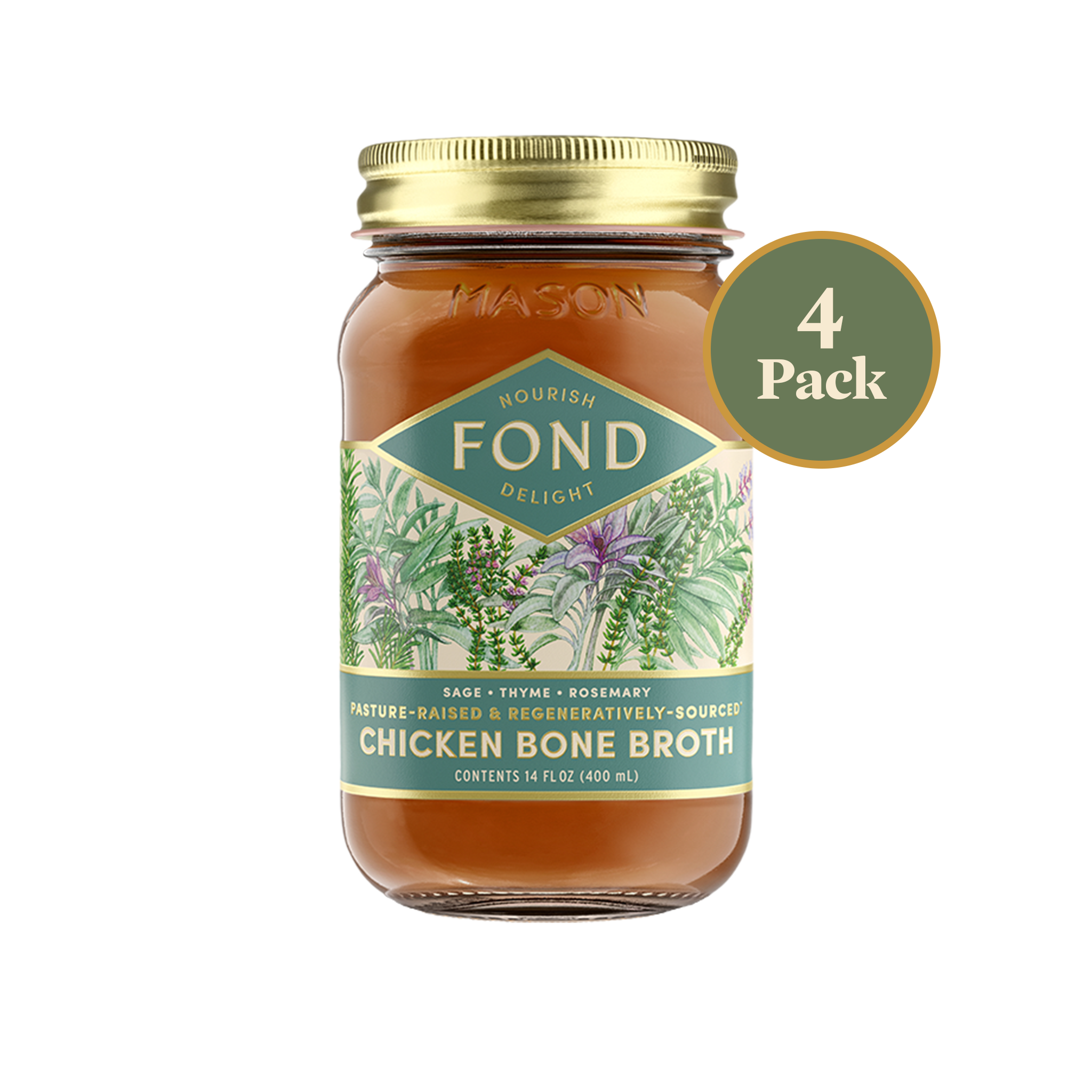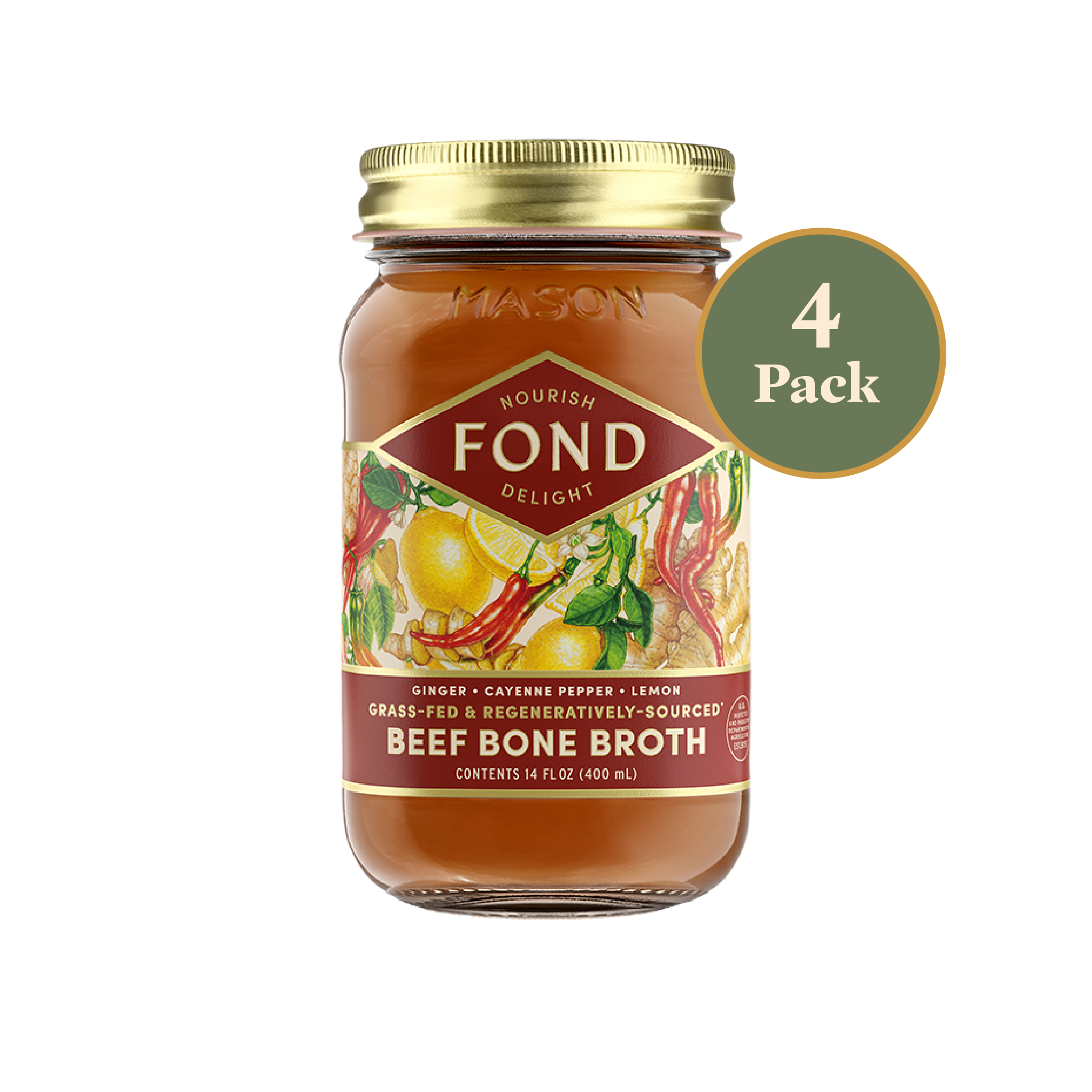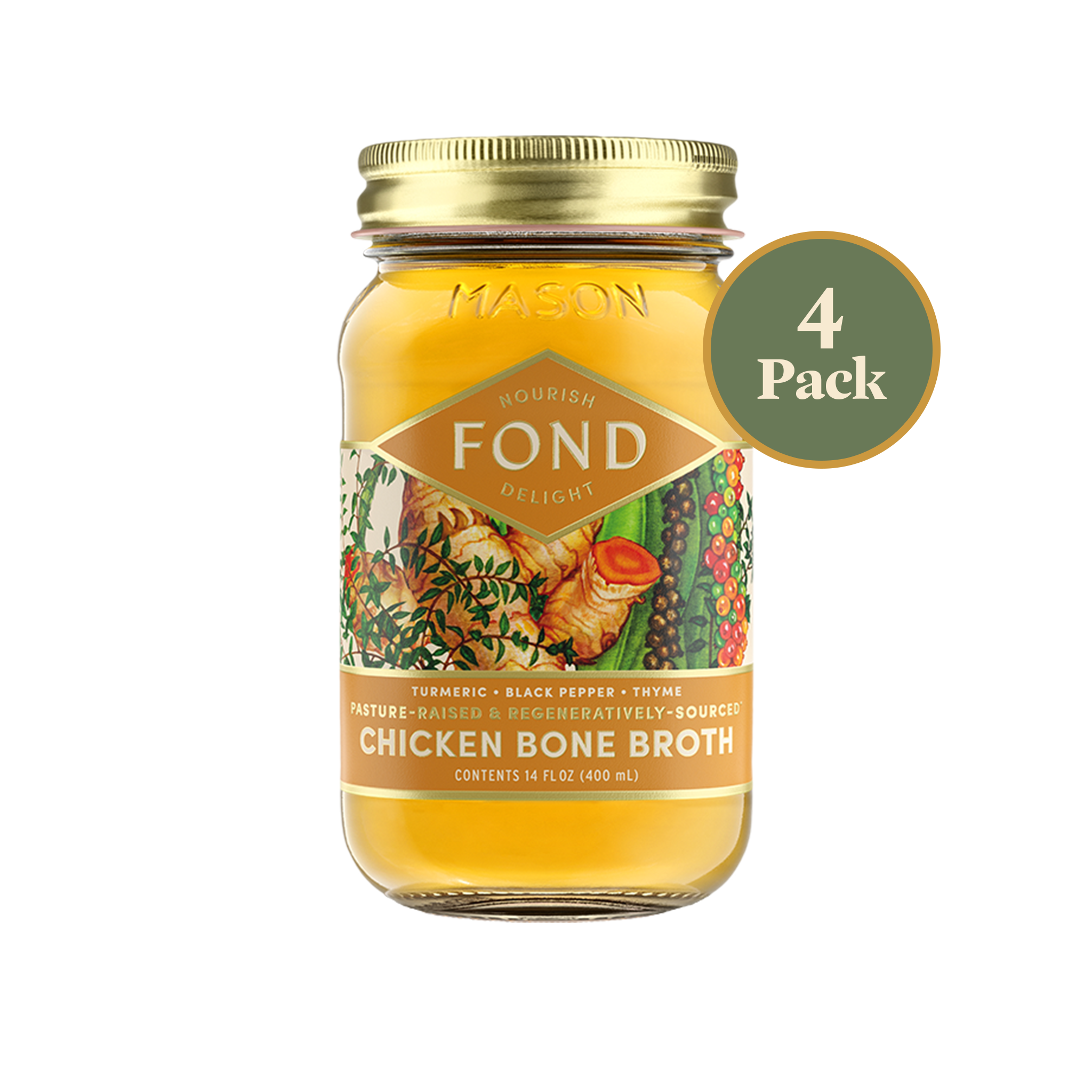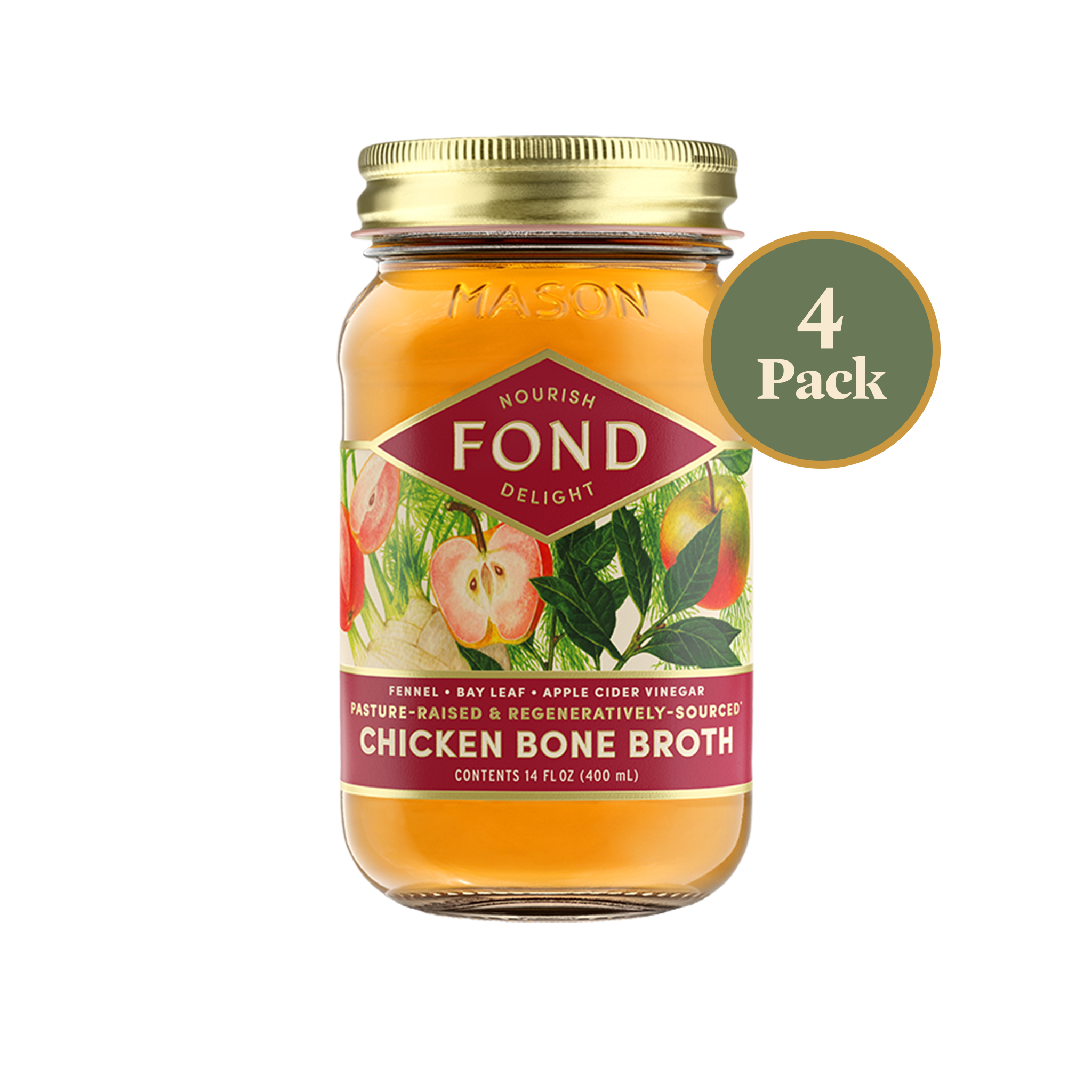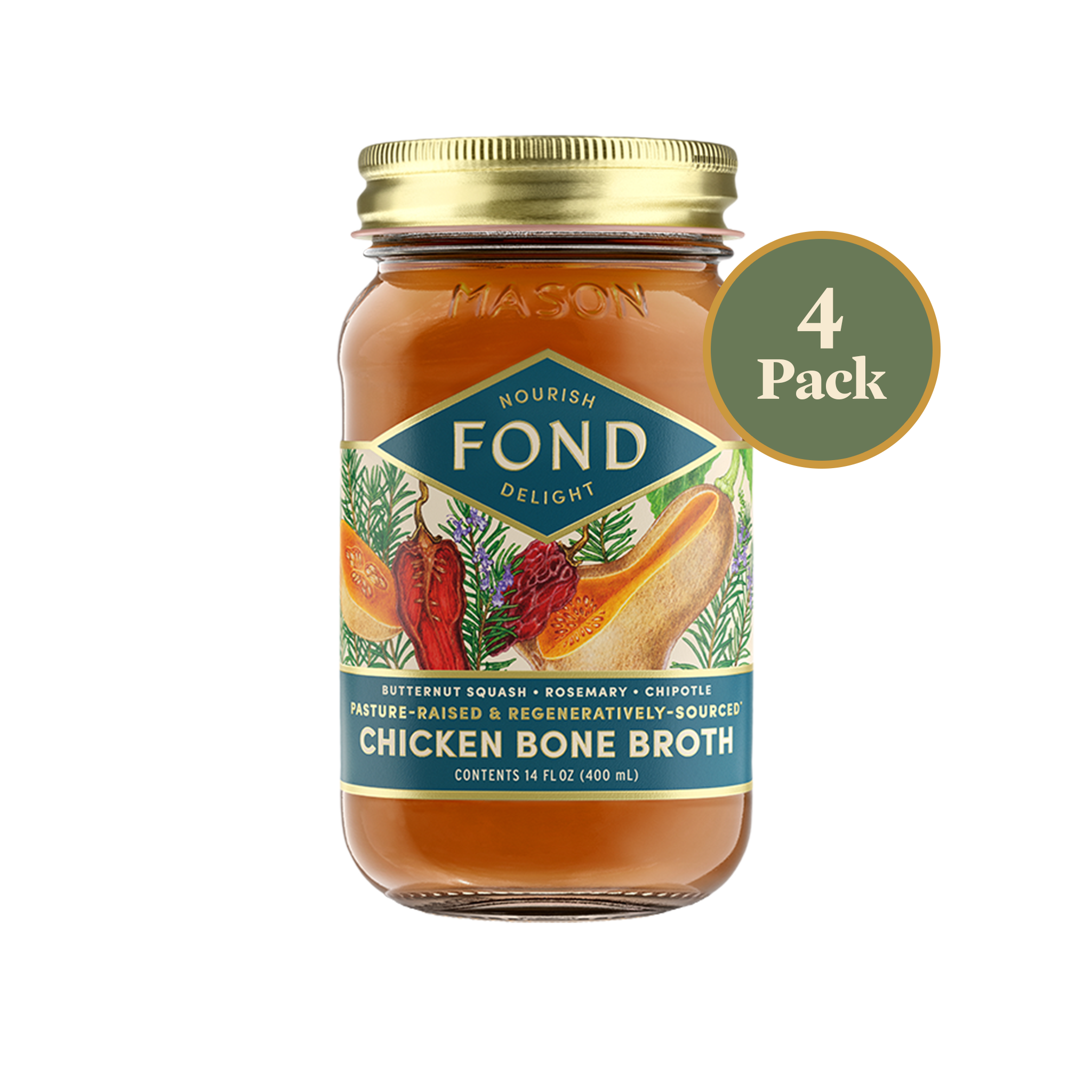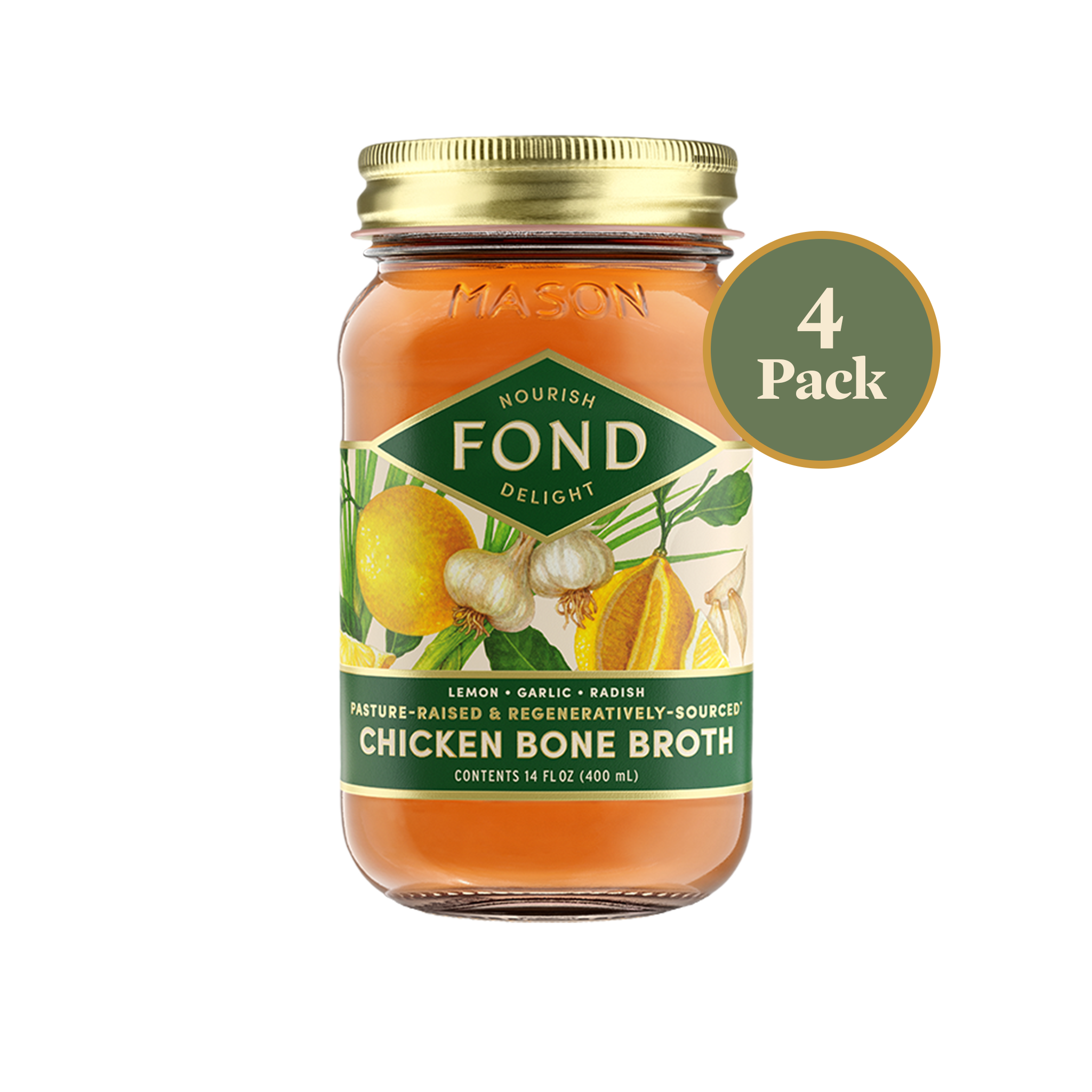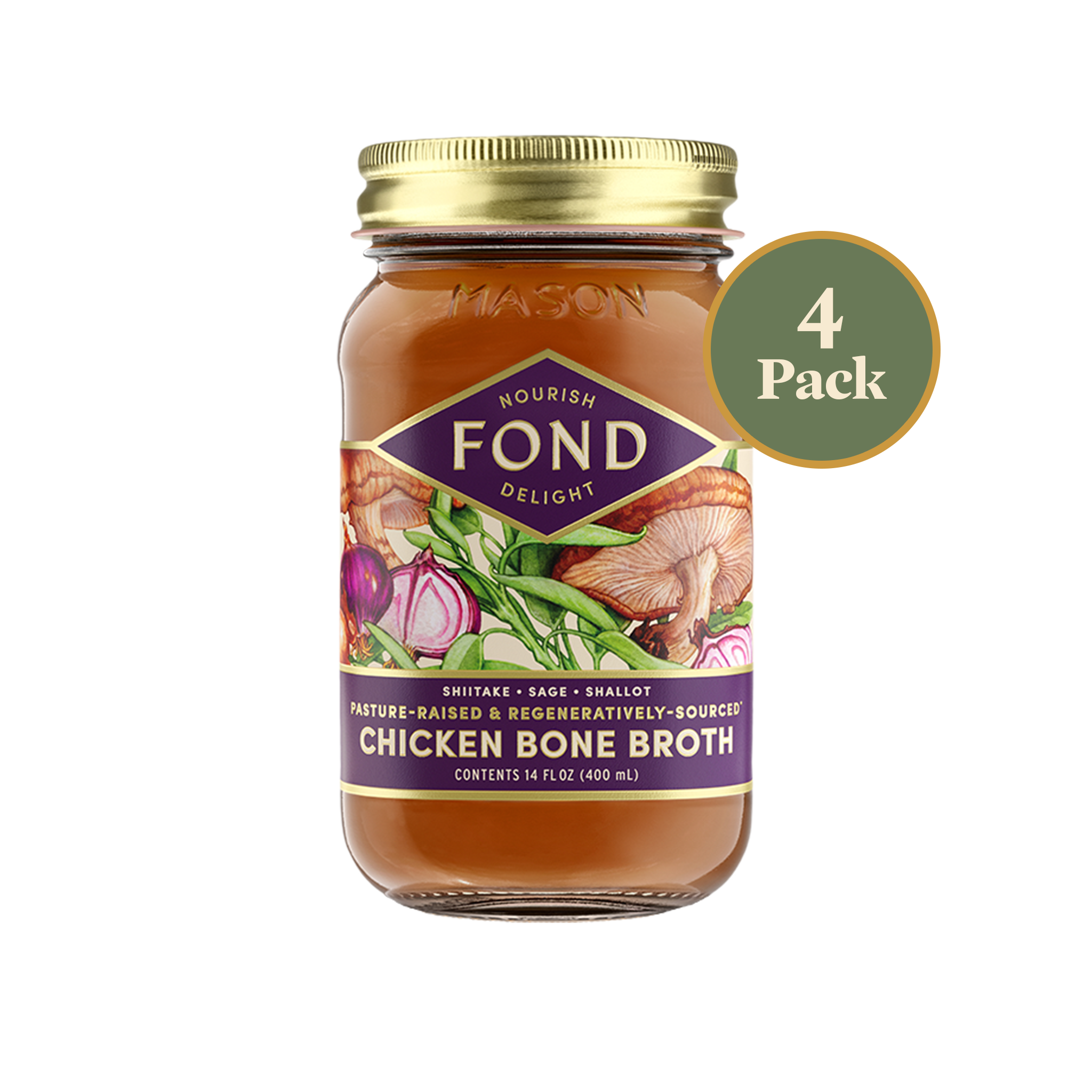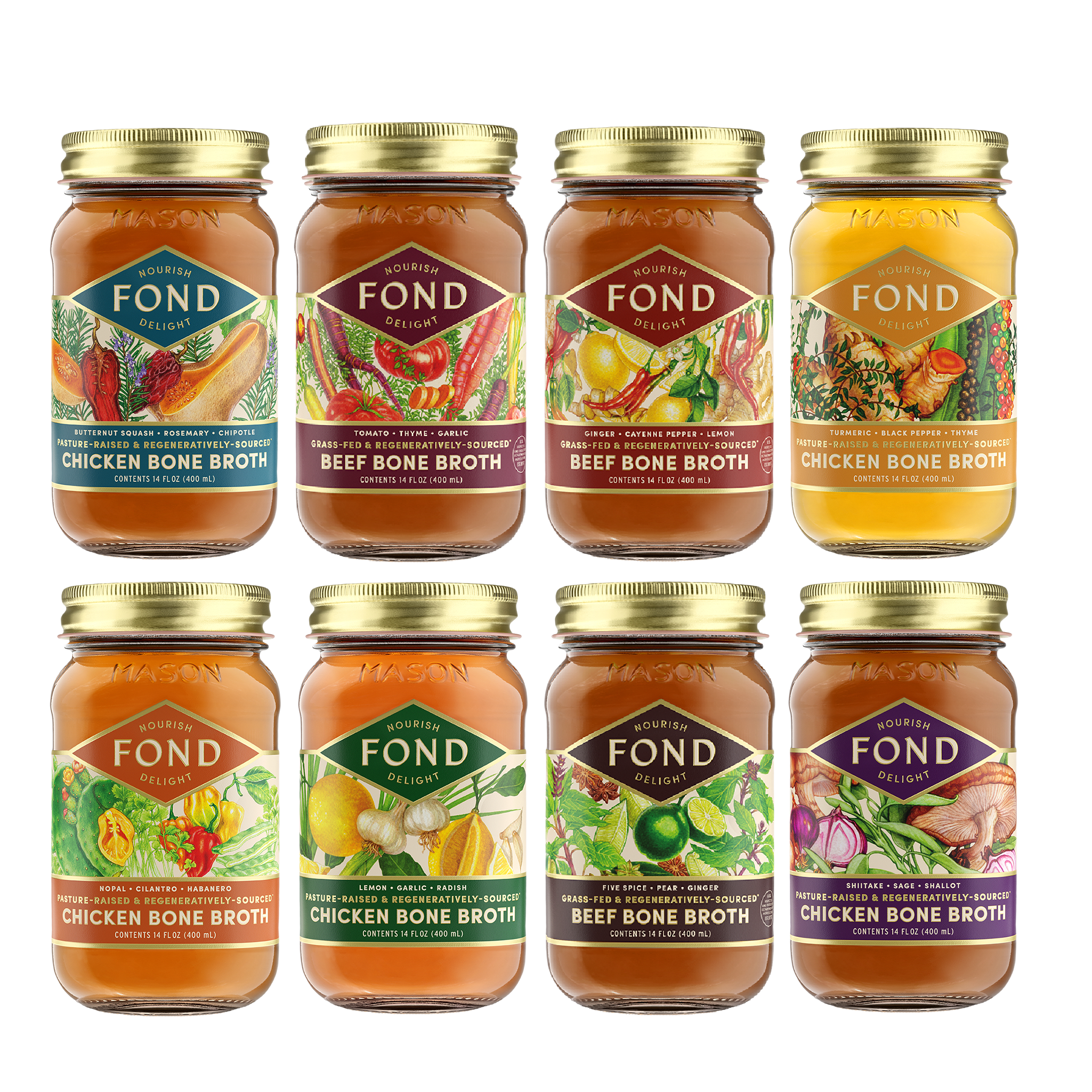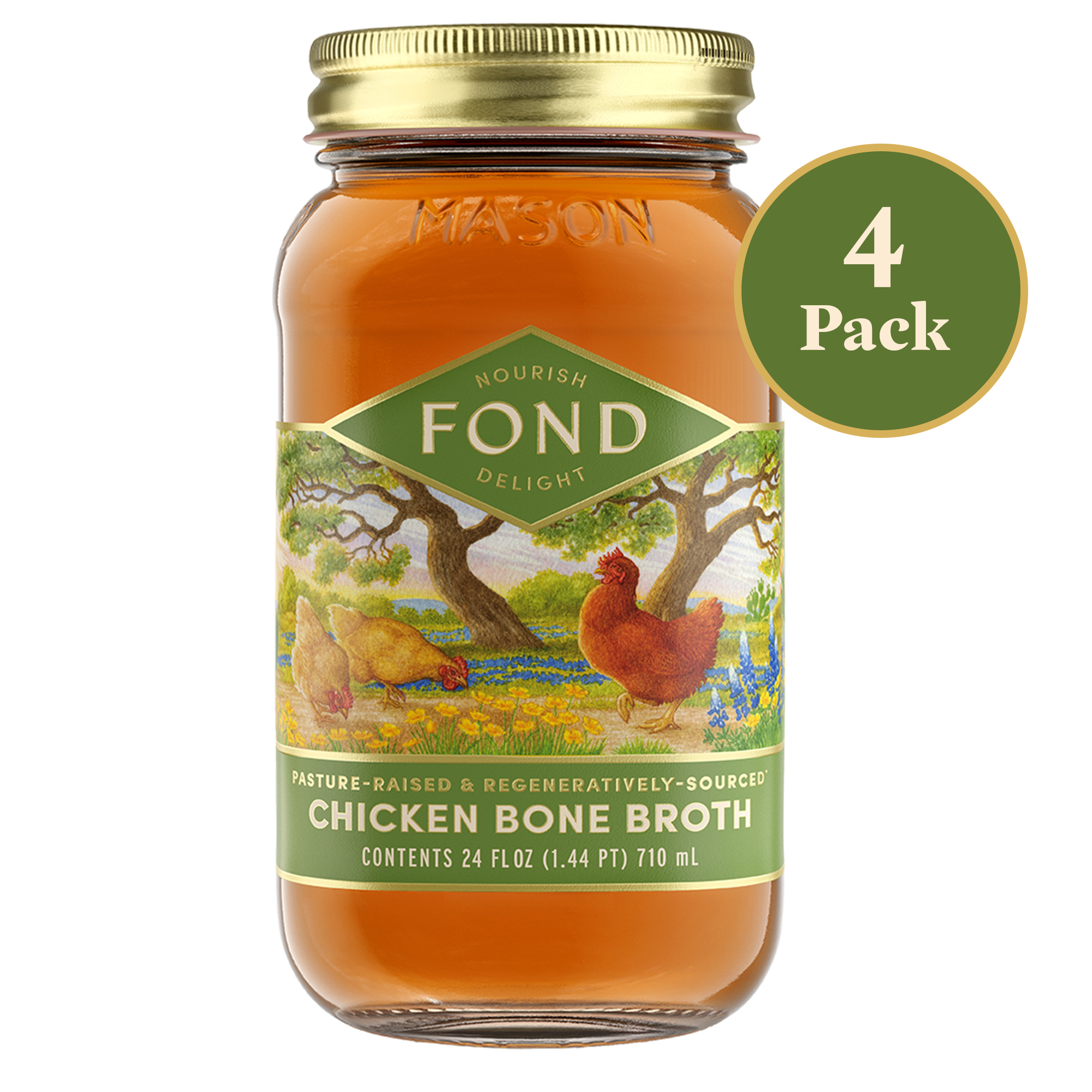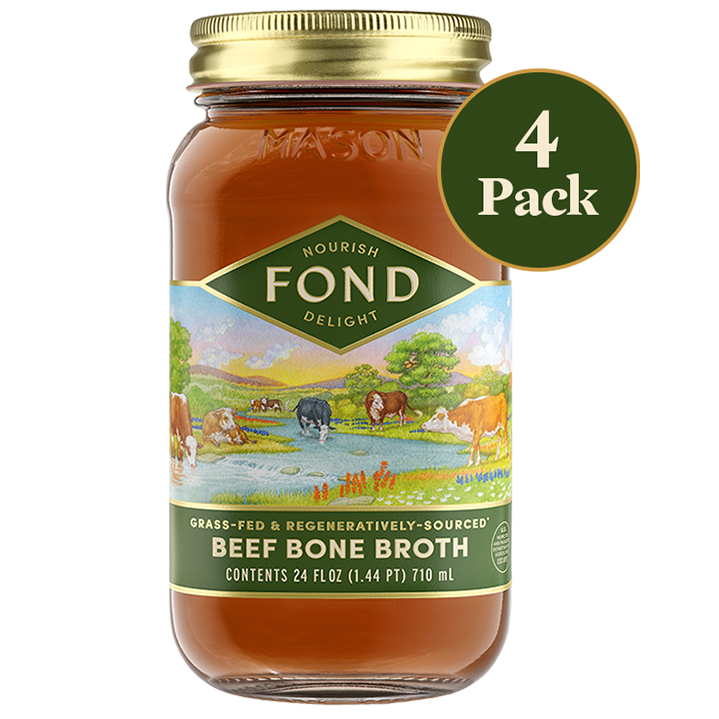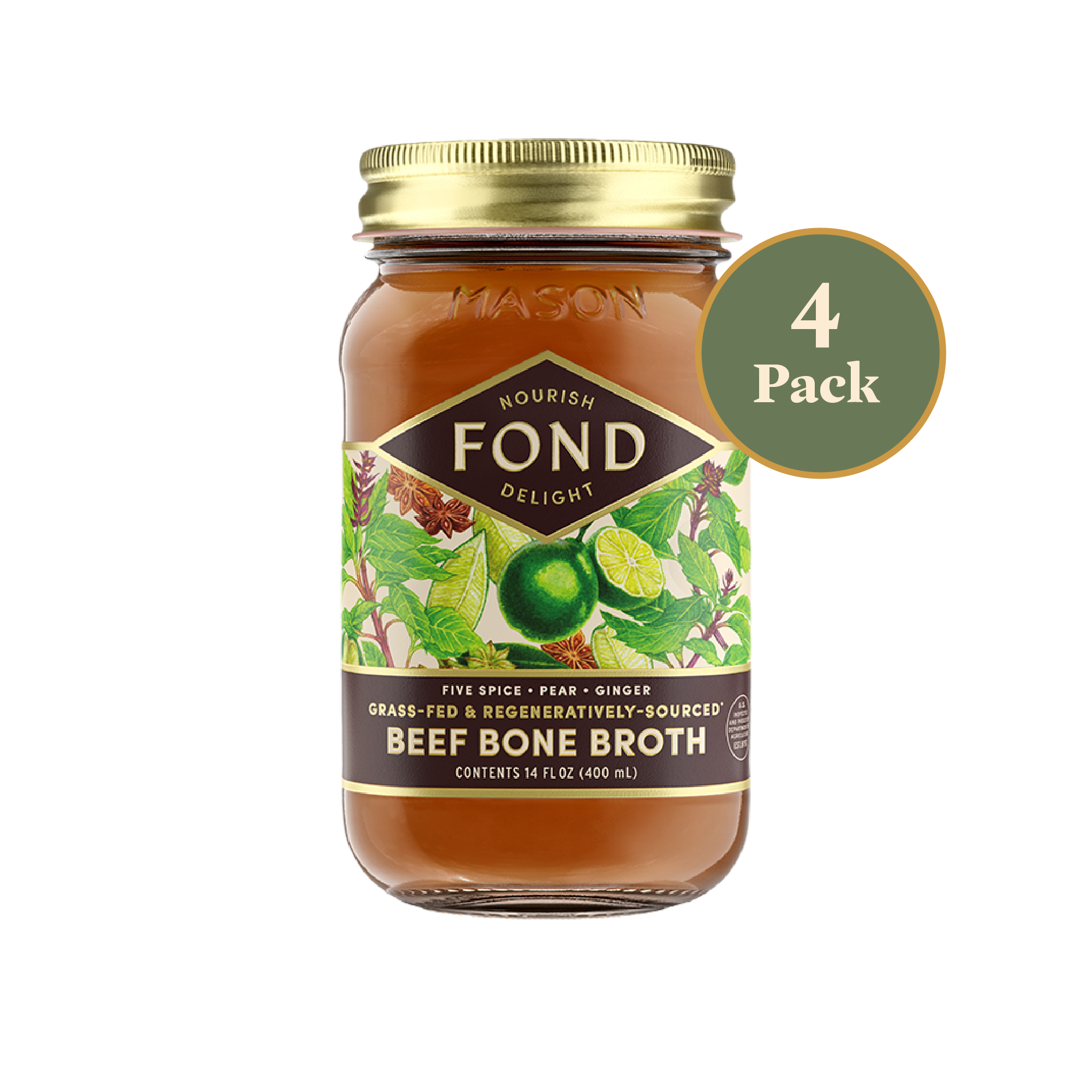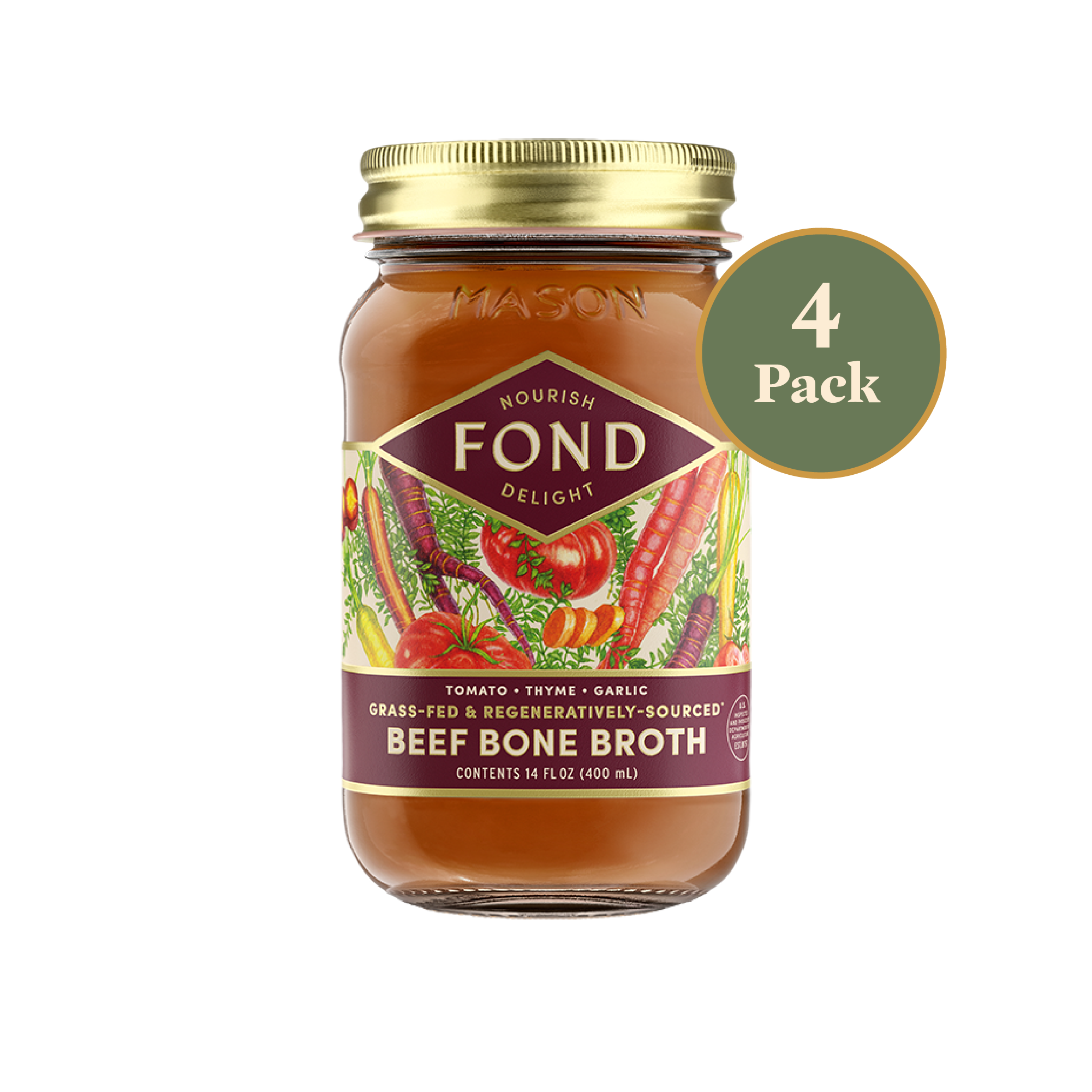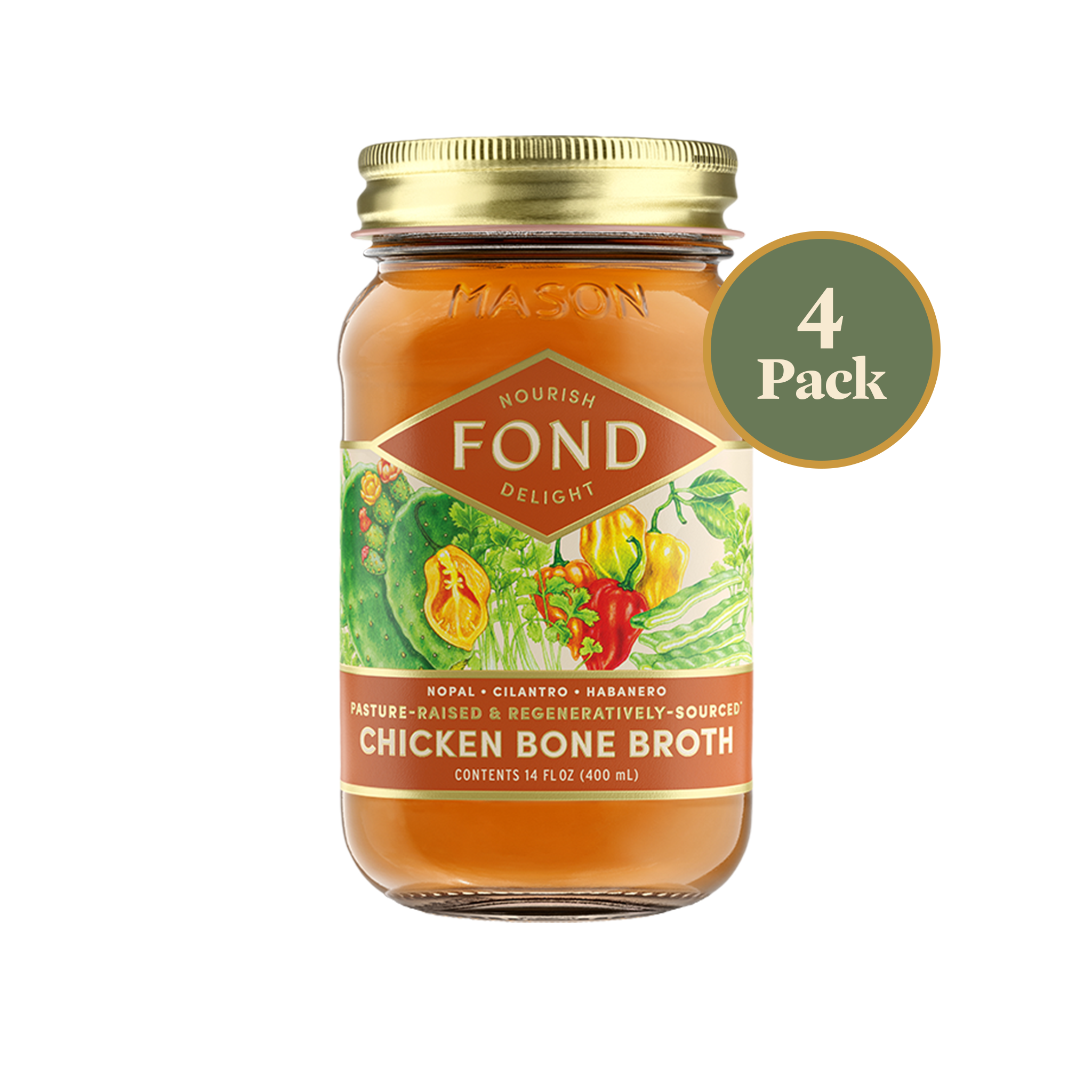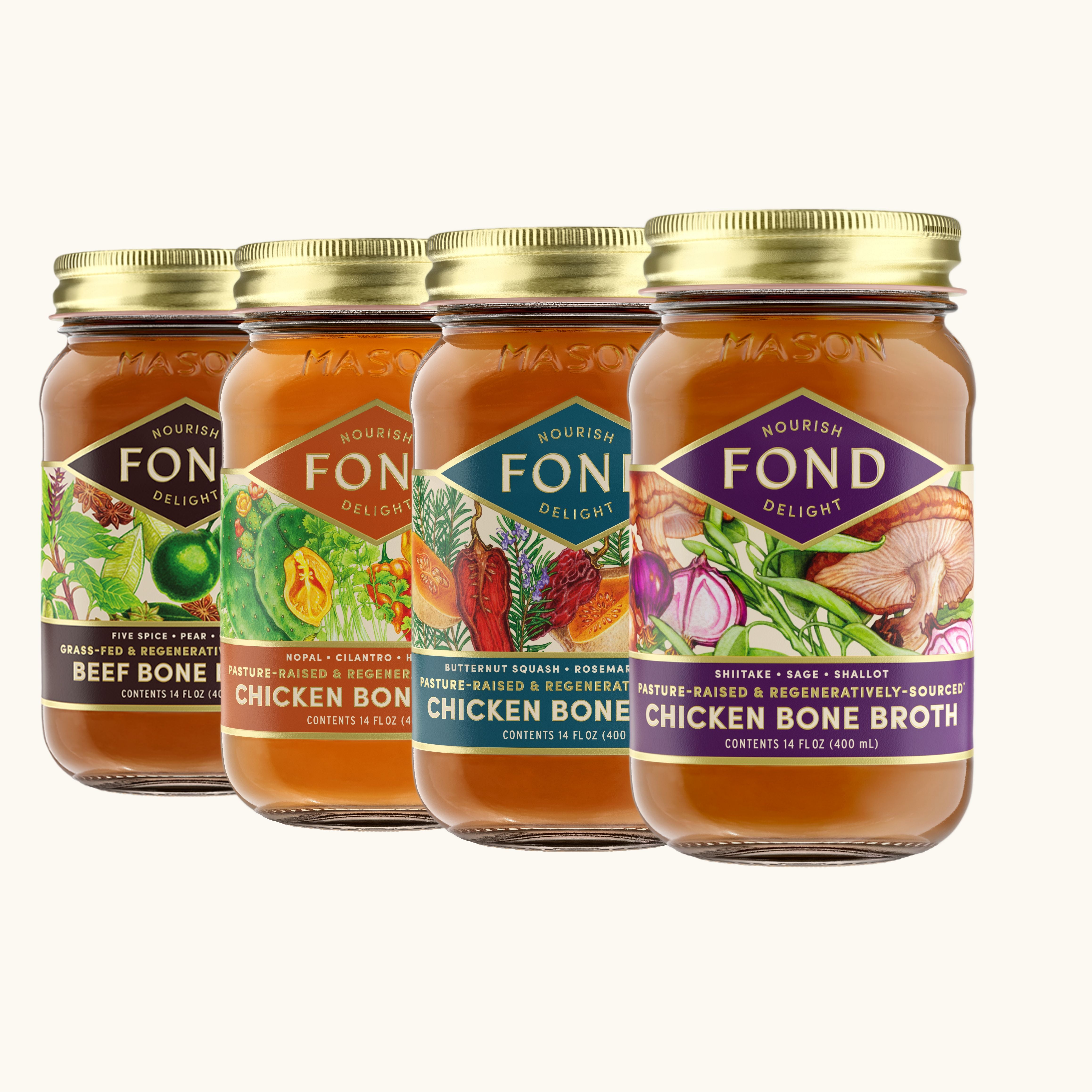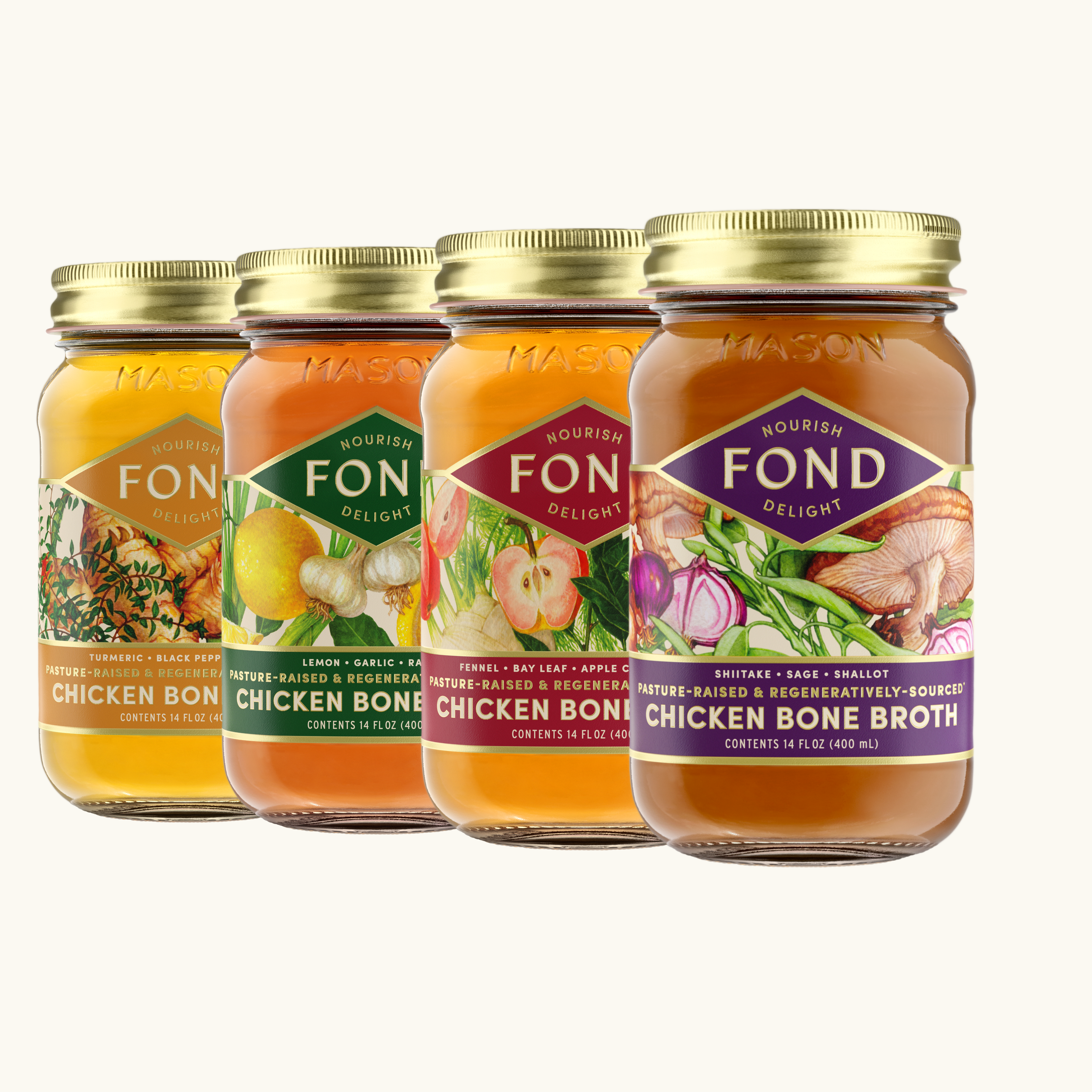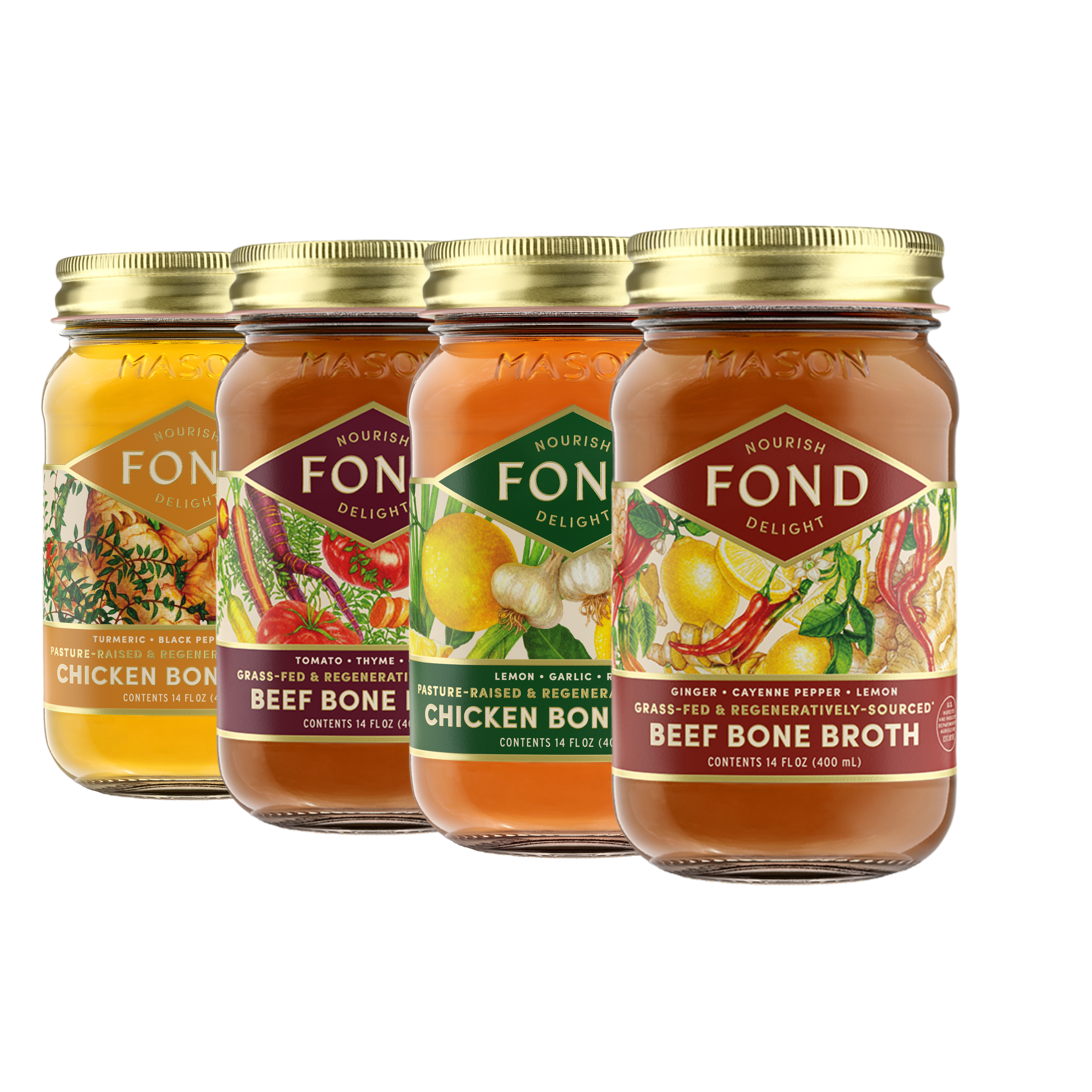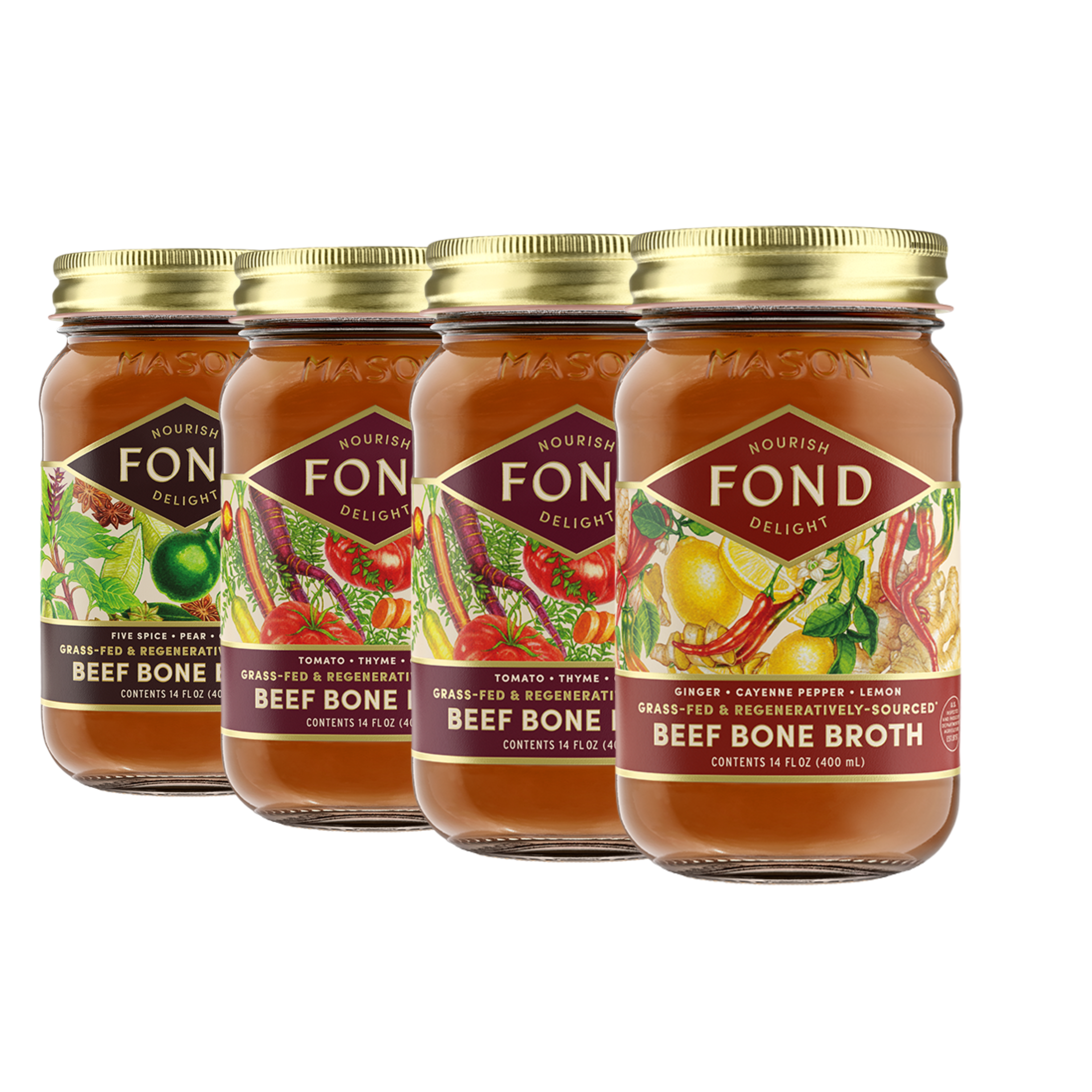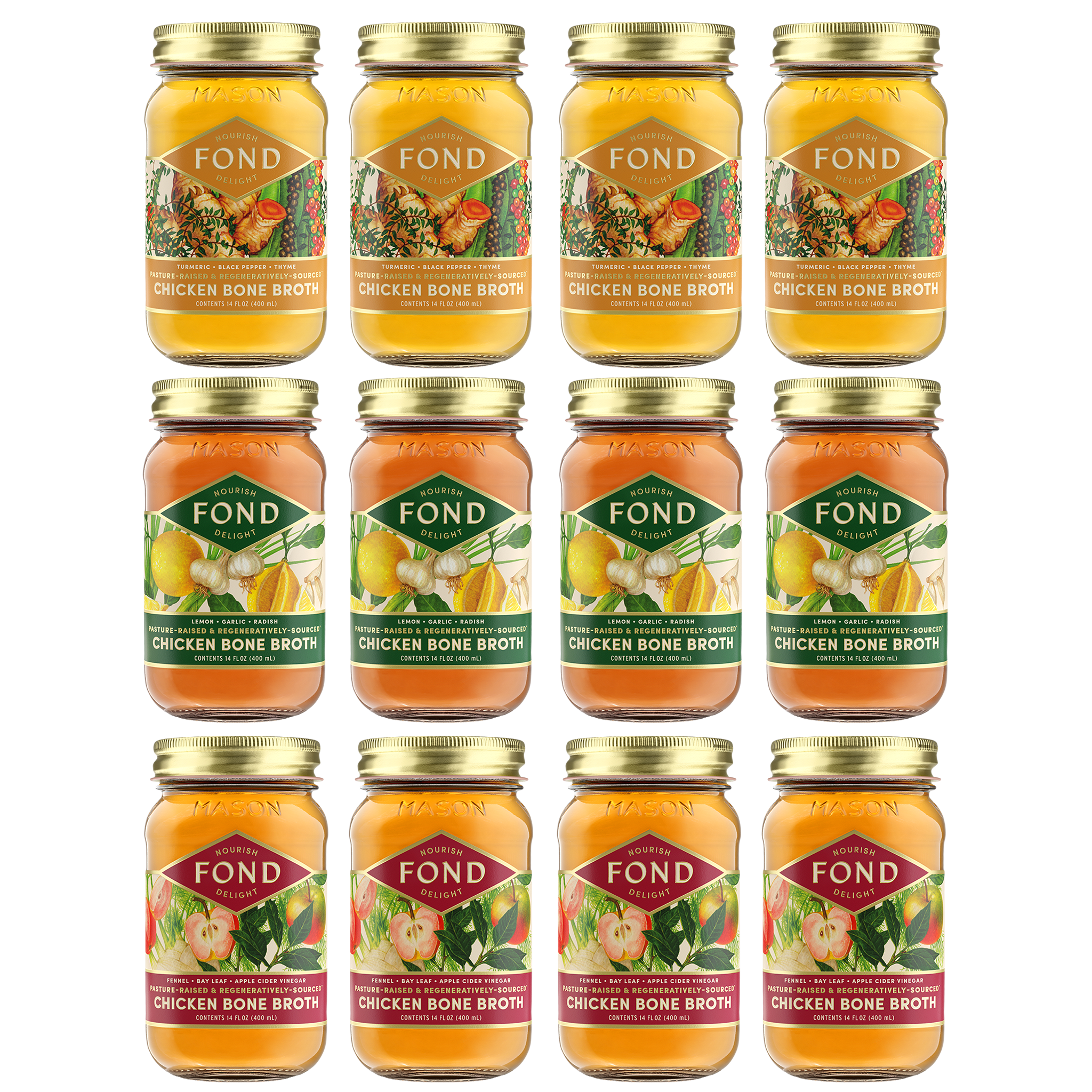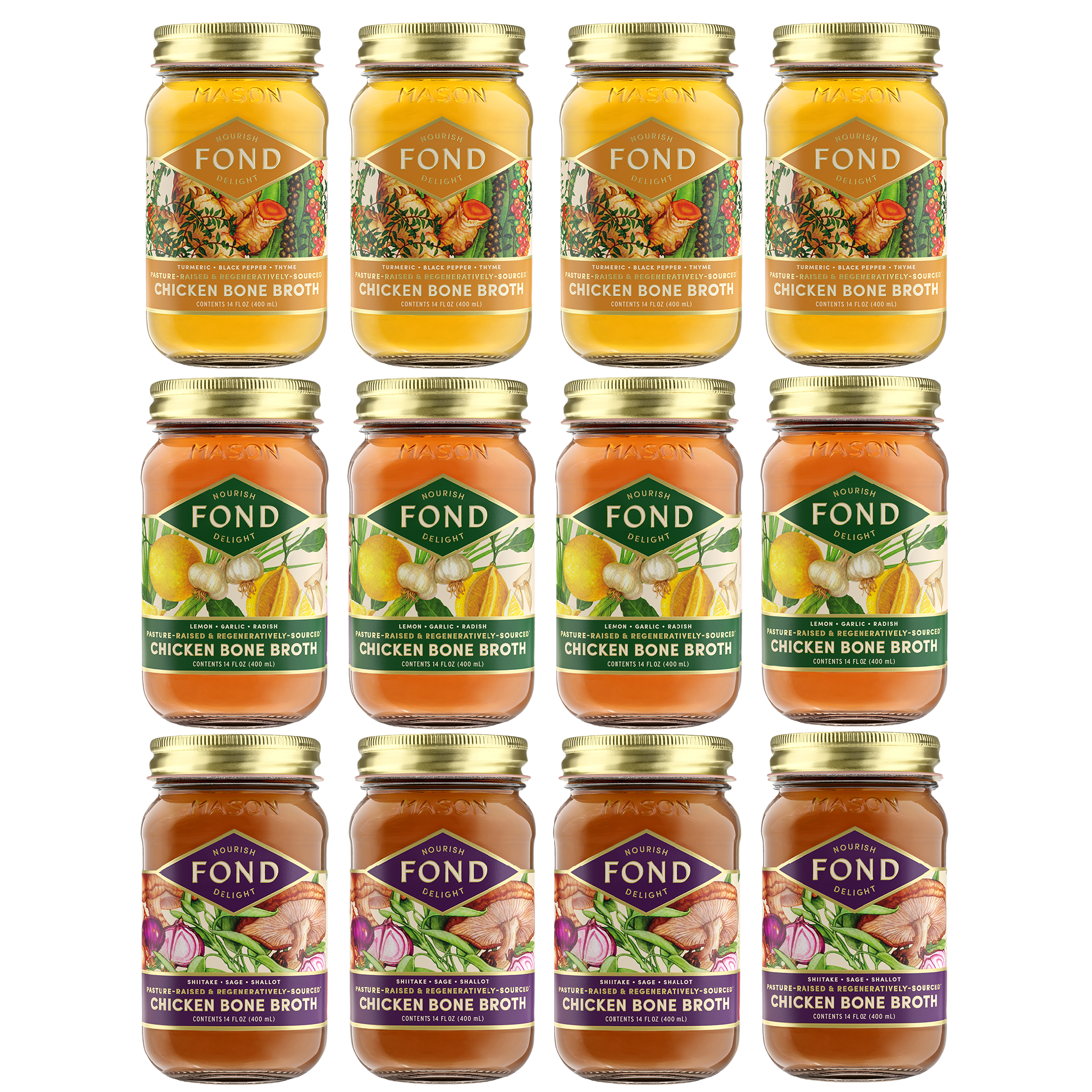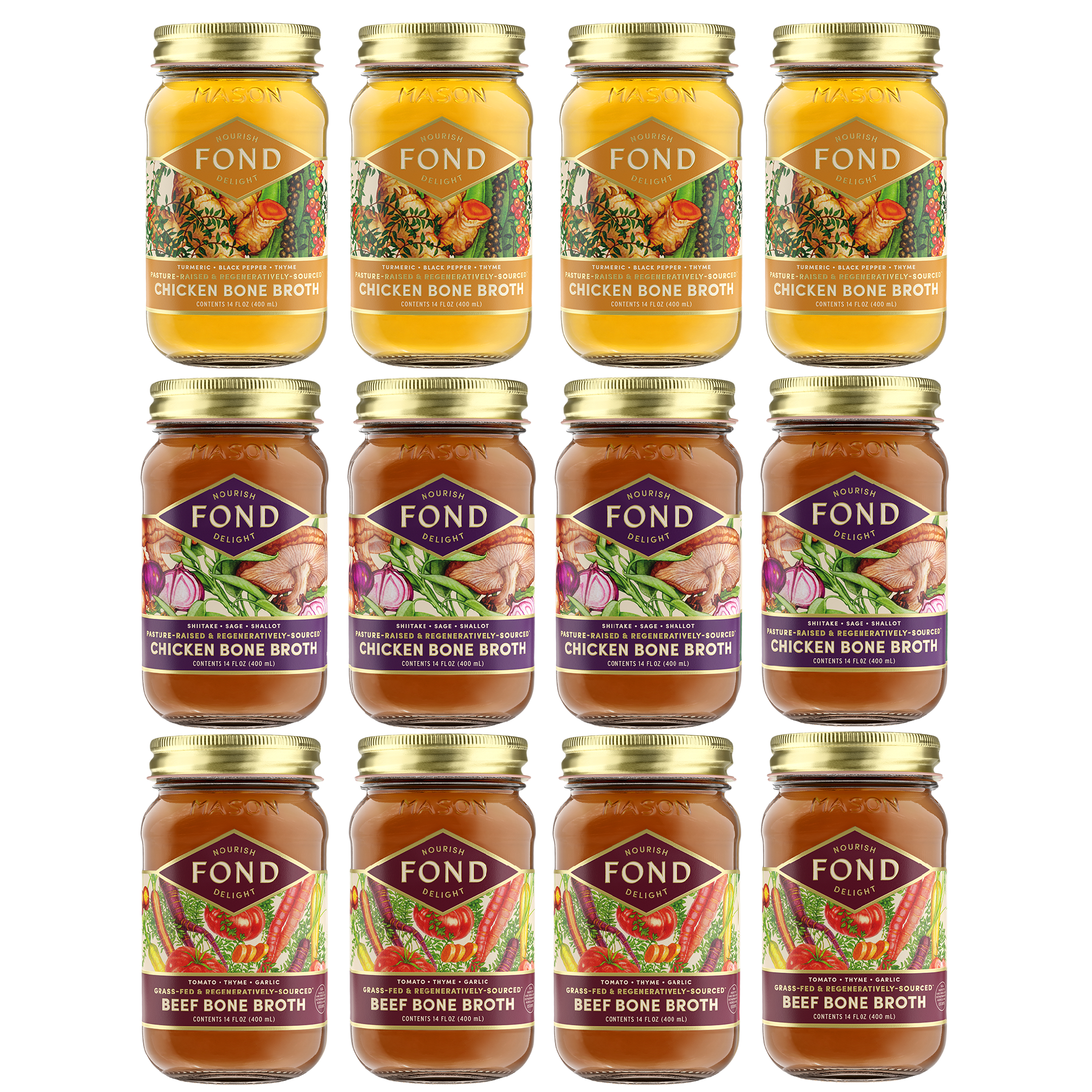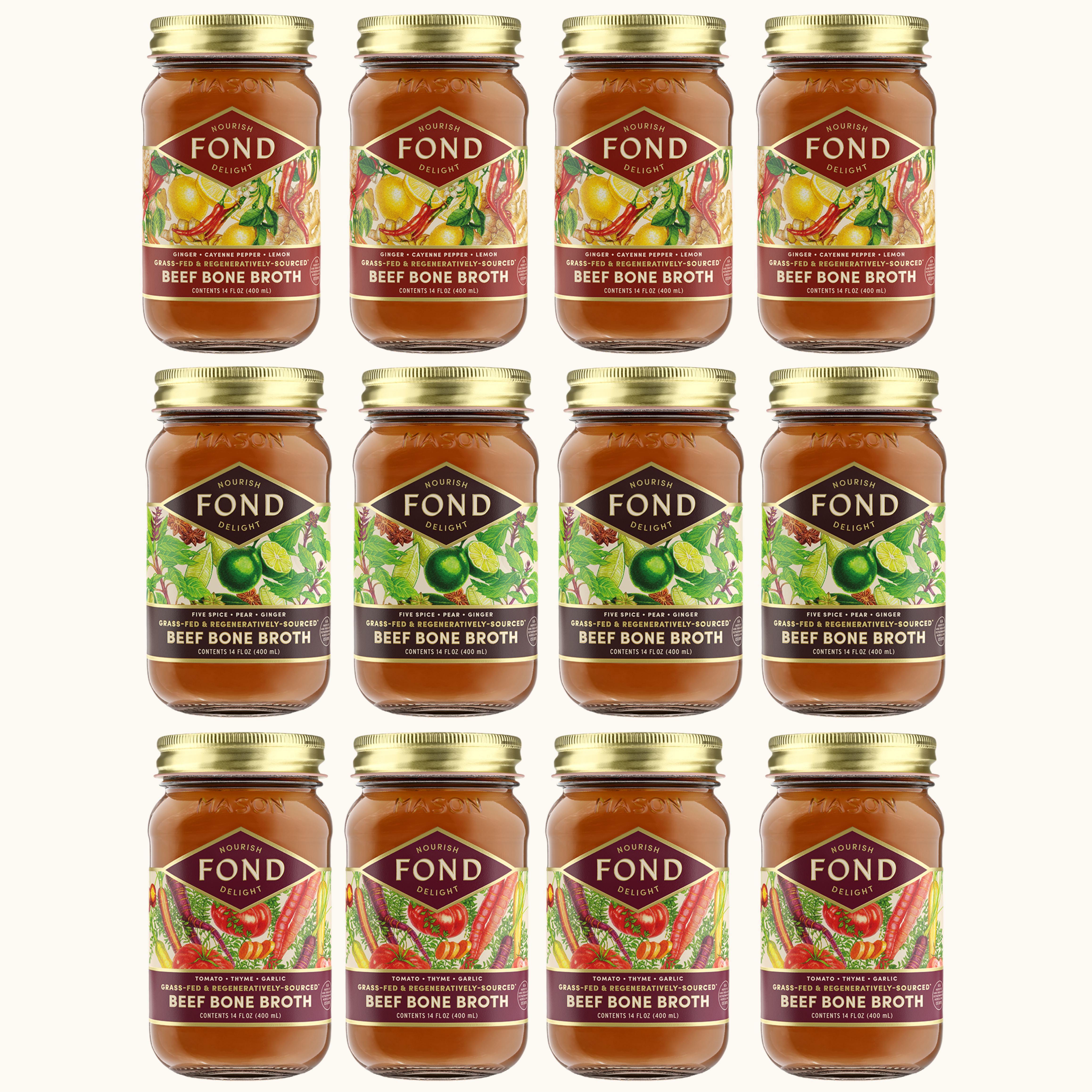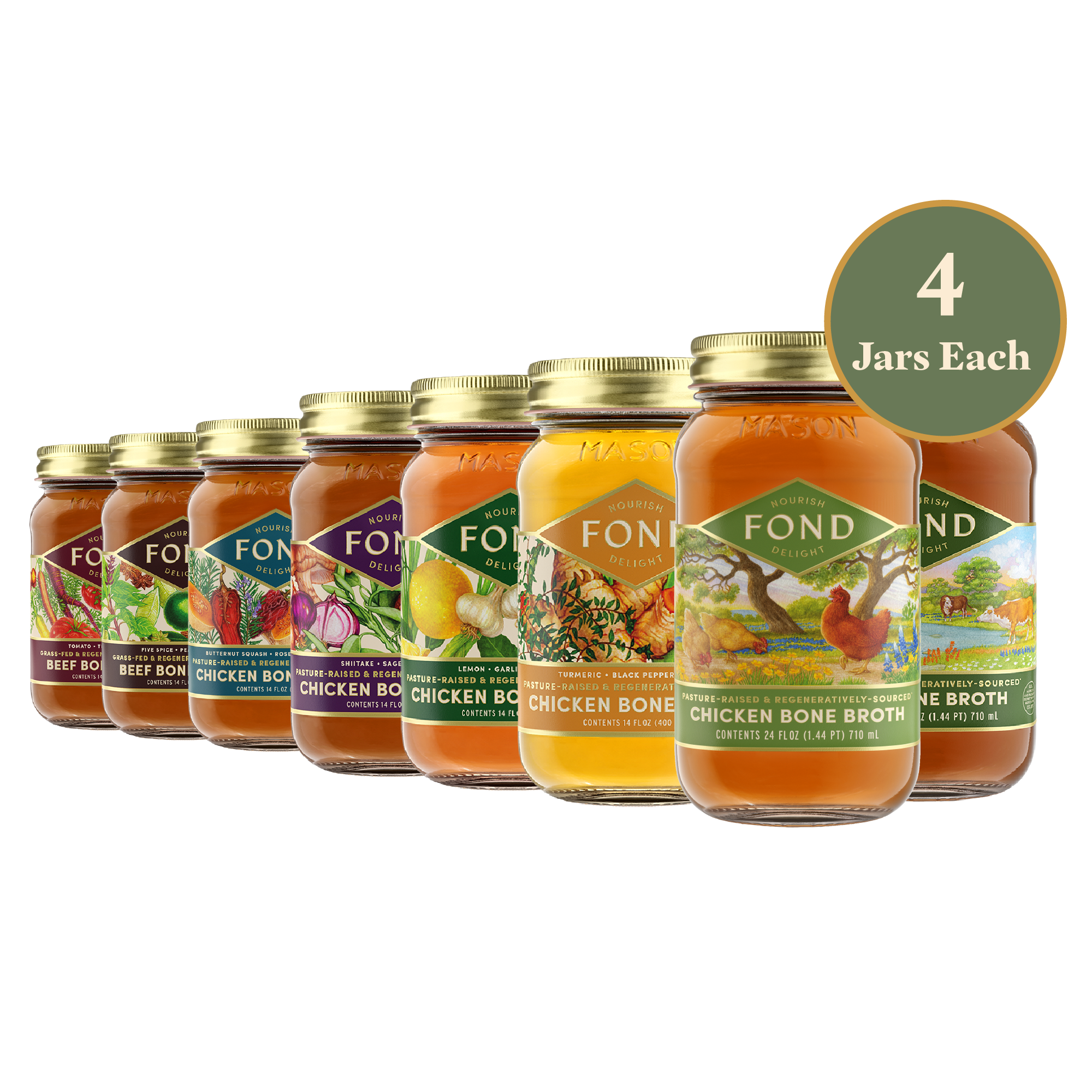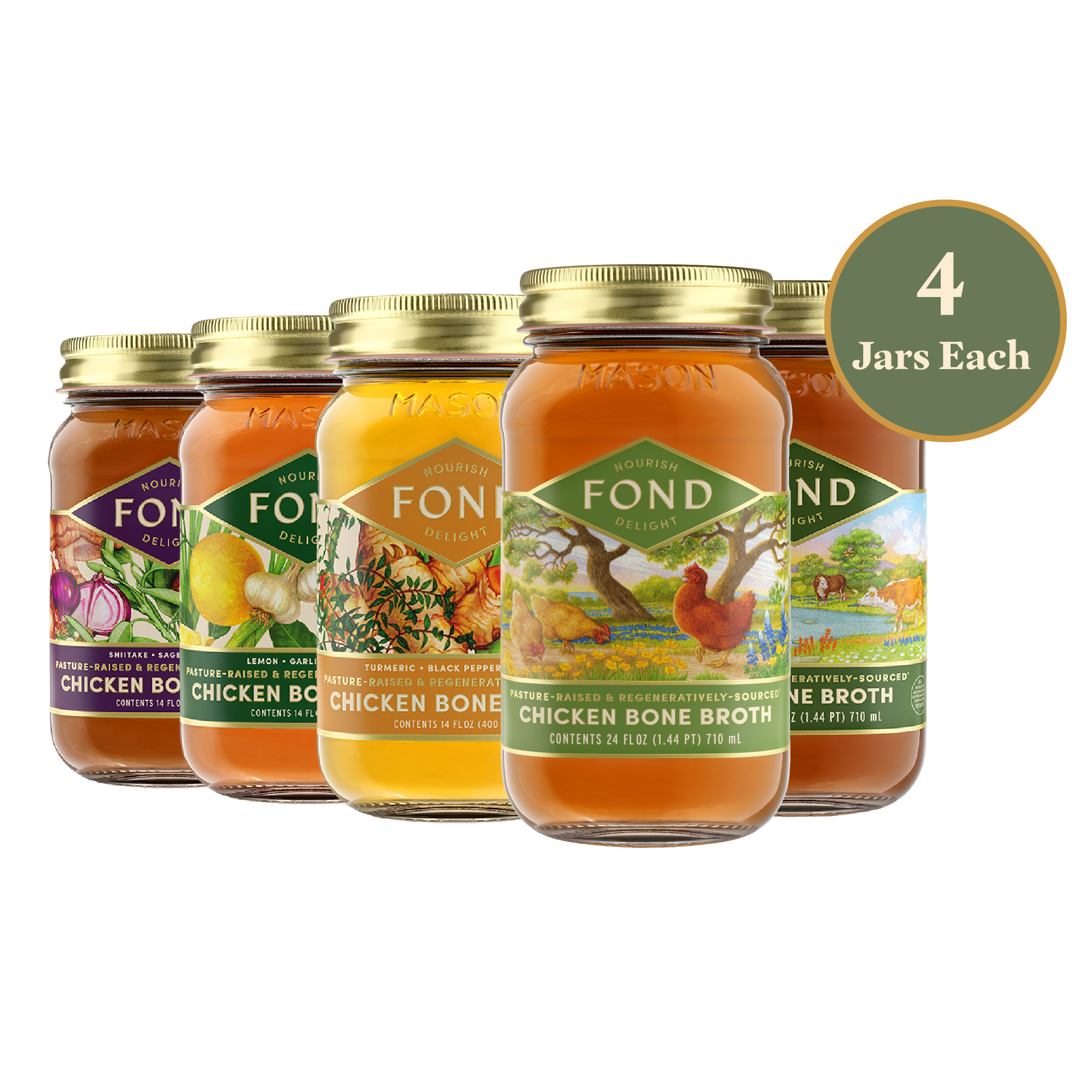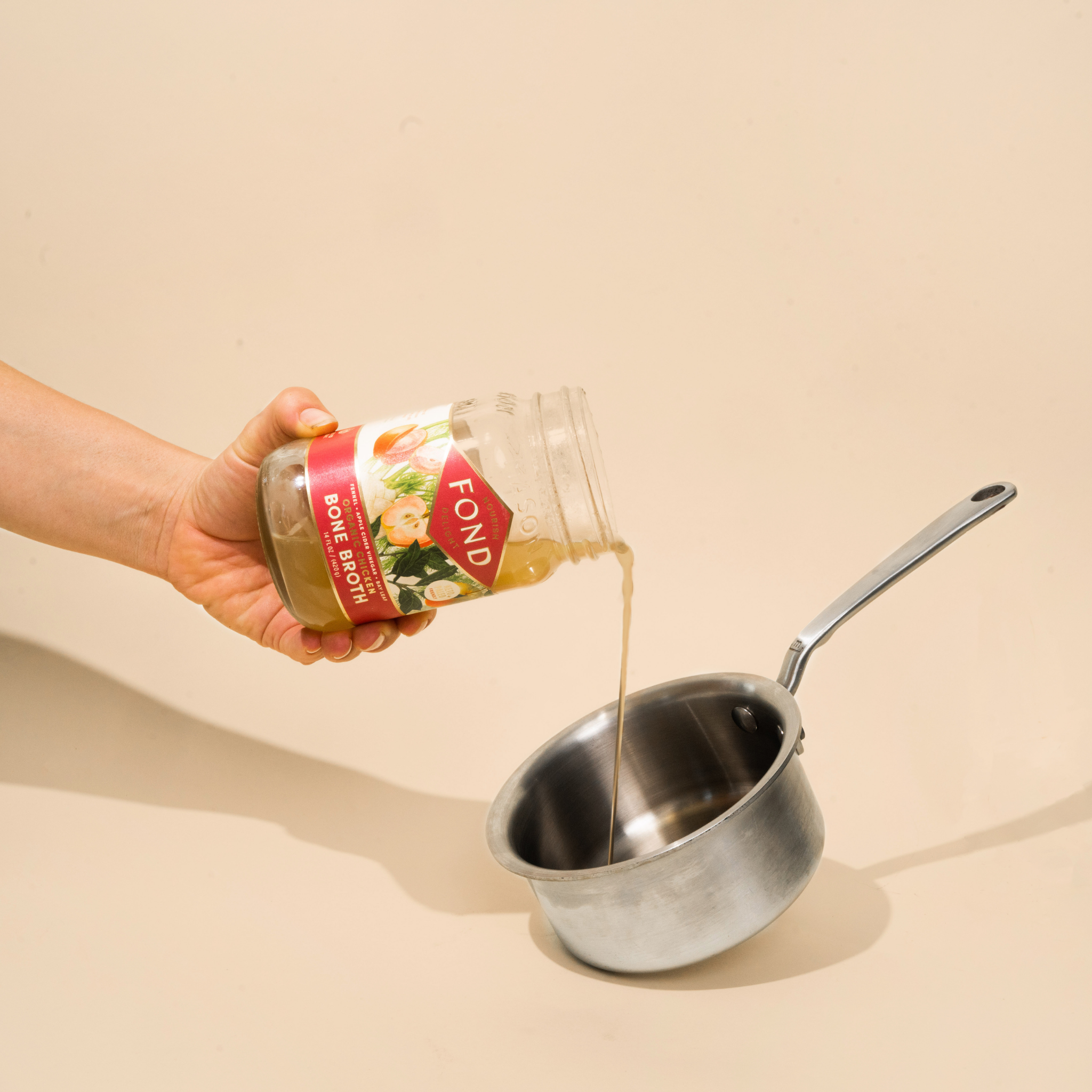Gut health, it’s not just a trend on TikTok, but rather, a pivotal part of overall health and wellness. The state of our gut health plays a huge role in our overall well-being. A well-functioning gut is not just responsible for digestion; it influences our immune system, mood, and even the health of our skin.
As a Registered Dietitian, educating my patients on how to support and maintain a healthy gut is a key part of our time together. We know gut health plays a crucial role in digestion, immunity, and even mental health, but what about blood sugar balance. My focus is always, real food first, and while probiotic supplements can have their place, I recommend incorporating a large variety of gut-healthy foods into your diet, first.
Let’s explore five effective ways to love your gut through your diet.
Five Ways to Support Your Gut Through Your Diet
1. Bone Broth: A Gut-Supporting Elixir
Bone broth has been hailed as a superfood for gut health, and for good reason. Research has shown that bone broth contains a myriad of gut-supporting qualities that you can’t get from other foods in a combination like this. Let’s break it down into the big three:
-
It’s rich in Collagen: Collagen, found in the bones and connective tissues, helps repair and strengthen the gut lining, promoting better digestion and nutrient absorption. For anyone who’s experiencing nutrition deficiencies of any degree, adding collagen to their diet is helpful for optimal nutrition absorption.
-
The gelatin: The gelatin in bone broth also aids in soothing and healing the gut, making it an excellent addition to your diet. The gelatin content in bone broth may contribute to a healthier gut lining. This could aid digestion and potentially address concerns like leaky gut syndrome.
-
Amino acids: If you took chemistry, you know amino acids are “the building blocks of life.” But when it comes to your GI tract, amino acids can help protect the gut barrier and stabilize digestive processes which can help with absorption of nutrients. Bone broth is especially high in the amino acid glutamine which can help support gut and immune function. Drinking bone broth daily may be a simple way to get anti-inflammatory amino acids into your body!
But, let me clear, you won’t find these benefits in just any bone broth you pick up off the shelf. You need to look for a bone broth that is ideally made with bones sourced from regenerative farms and pasture-raised and grass-fed animals. This will result in a more nutrient-dense bone broth that offers protein, fat and multiple vitamins and minerals in a sip. That’s why I believe FOND Bone Broth to be one of the best bone broths on the market for supporting gut health.
Plus, side note, have you ever noticed that there’s vegetable stock, chicken stock, broth, and bone broth on the shelf? These products are all side by side and although it seems like virtually the same product; they have vast differences. Most of these products are just bottled salt water.
Why FOND Bone Broth?
FOND bone broth stands out as a superior choice for gut health. Made from pasture-raised animals, it ensures superior nutrition from the land to your gut. With two types of collagen sourced from both beef and chicken, FOND bone broths offer a comprehensive profile of gut-loving nutrients.
You can find different benefits in the two different types of bone broth offered by FOND, chicken and beef. Beef bone broth is going to have a higher concentration of minerals and collagen, specifically the collagen found in the lining of the intestines. Beef bone broth can help build the strength of the lining of the gut. Meanwhile, chicken bone broth is going to “heal and seal”, and can help repair any weakness or faults in your digestive system. but , either one you pick provides a hefty dose of gut-supportive nutrients!
I also like to point out that when you’re sick, or can’t stomach more variable meals, for example when you’re pregnant and fighting first trimester morning sickness, bone broth is a great option to add to your grocery cart. why? Bone broth is easily digested, provides up to 10g of protein per cup, and can help soothe the digestive system. FOND’s bone broths are especially great with the variety of anti-inflammatory ingredients they incorporate into their 18+ hour simmer process like ginger, garlic and turmeric. Check out their full run down on the benefits of bone broth for gut health here!
Easy Ways to Incorporate FOND Bone Broth into your routine:
-
Use it as a 1:1 replacement for water in rice or potato dishes.
-
Make it the base for hearty soups and stews. See my favorite chicken soup recipe here!
-
Sip on it straight as a comforting and nourishing beverage.
Think of bone broth as a nutrient-packed, more natural protein shake. One without the cheap filler, sweet flavor, and added sugar that wrecks your gut. Now, let’s talk about other ways to support your gut health!
2. Fermented Foods
Fermented foods are probiotic powerhouses of beneficial bacteria that support a healthy gut microbiome. Incorporate foods like sauerkraut, kimchi, yogurt, and kefir into your diet. These probiotic-rich options promote the balance of good bacteria in your gut, enhancing digestion and overall gut health.
Hot tip! Avoid fermented foods with added sugars, which you’ll often see in yogurt and kombucha. Any “bad” bacteria in the gut will feed on that sugar, resulting in more harm than good.
3. Fiber from Flax and Chia Seeds
Flax and chia are gut-loving superfoods that offer a wide array of benefits. But first, how does fiber support gut health? Fiber is essentially the fertilizer for healthy gut bacteria. Feed it well so it can grow and flourish in diversity! Fiber can ensure regular bowel movements and help good gut bacterial strains thrive.
-
Chia seeds are rich in both soluble and insoluble fiber. They aid in digestion, promote bowel regularity, and support overall gut health. Two tablespoons pack in 9.8 grams of fiber!
-
Flax seeds are high in insoluble fiber which can again, support regular bowel movements, and prevent unwanted constipation or bloating. Two tbsp of ground flaxseeds can provide upward of 11% of your daily fiber needs.
4. Leafy Greens
Leafy greens, such as spinach, kale, and Swiss chard, are packed with vitamins, minerals, and antioxidants. We know these nutrients are essential to our health and well-being, but what about our gut health? Leafy greens are high in fiber, anti-inflammatory properties and prebiotics (more on that later!), all of which can support a healthy gut microbiome. In fact, increased consumption of leafy greens can not only support your gut health, but also reduce the risk of disease like diabetes and cardiovascular disease.
Three ways to incorporate greens into your diet:
-
Add spinach to smoothies and soups
-
Chop kale into scrambled eggs
-
Swap your romaine lettuce for arugula (the bitter flavor supports improved digestion!)
5. Don’t forget about Prebiotics!
Prebiotics are non-digestible food components (not bacteria) that feed the previously mentioned good bacteria in your gut. They help support a balanced gut flora and aid in digestive health. And, they’re pretty rare in the standard American diet. It’s helpful to think of prebiotics like fertilizer for the gut; they nourish and support the already growing good bacteria, like plants, and come from an outside source as the body does not naturally create them.
Examples of prebiotics include:
-
Inulin
-
Asparagus
-
Onion
-
Garlic - I love FOND’s Lemon and Garlic Broth for a prebiotic rich addition to meals!
-
Sunchokes; one of my favorite vegetables to roast!
Remember, a well-balanced gut translates to improved digestion, enhanced immunity, and even a brighter mood. We all want to glow from the inside out! Make the choice to prioritize your gut health and incorporate gut-loving foods like FOND bone broth today! Remember, a happy gut is a key to a happier, healthier you.
Whitney Stuart, is a registered dietitian-nutritionist (a dietitian, RD, and RDN!) and Certified Diabetes Care and Education Specialist (CDCES) focused on the improvement of metabolism, gut health and blood sugar through high-touch functional nutrition programs. Learn more about Whitney’s virtual practice, Whitness Nutrition, here and follow her on social media, @whitnessnutrition, for more blood sugar bliss education.







